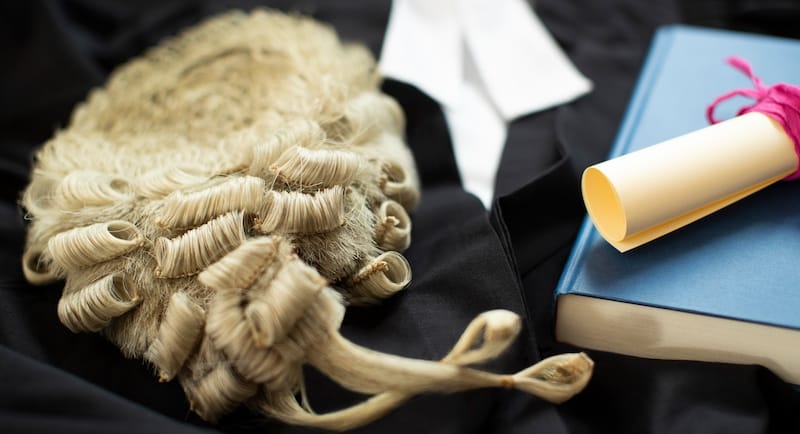After recently completing pupillage, Greg Lawton shares some helpful advice

Pupillage can be a challenging time for any aspiring barrister. From navigating the complexities of life in chambers to managing the often chaotic court system, this sharp learning curve is designed to equip you with the essential skills for a successful career at the bar.
To ease the transition from law school to life as a barrister, Greg Lawton has compiled 21 helpful tips based on his recent experiences during pupillage. We hope you find them useful!
1. When you’re shadowing in first six, take notes of the hearings and trials you attend — the court process, etiquette, what is said, who sits (or stands) and where.
2. Keep a spreadsheet of cases you’ve worked on — with the date, the name of the case, what it was about, what work you did, what issues came up and, from second six onwards, your fee. You might also want to note the name of the instructing solicitor and the judge.
3. Protect your data. Make sure the hard drive of your device is encrypted (if not, if the hard drive is removed, the data on it can still be accessed by putting the hard drive in a different computer). Consider investing in a privacy screen, and a paper shredder if you have hard copy documents at home.
4. Create a well-formatted document front page for use in all your written work / “papers”.
5. Keep a folder of template annotated forms e.g. for skeleton arguments, opinions, particulars of claim, attendance notes.
6. Make notes of any advocacy tactics, styles and phrases you like, and those you don’t.
7. To manage your cases, develop a system that works for you. For example, you could create folders in your email client for each calendar year, and subfolders within each year for each case by name, organised alphabetically. You could then create folders on your drive/storage space organised in the same way, for the files you need to save.
8. Make notes for yourself when you learn something. You could put them in a file, organised by topic.
9. Use an app on your phone to take notes in the moment of things you want to look up when you have more time.
10. Note how long things took to do and the factors which affected it — it can help with billing / quoting in the future. This will also come naturally with experience.
11. Keep folders of information / documents relating to the areas of law you’re working on.
12. Individual tax situations will vary, but if you have a choice of start date, 6 October will mean you’re on your feet for second six and taking self-employed work on 6 April, the start of a new tax year. Make sure you register as self-employed on that date, and get your VAT number from HMRC (solicitors will ask for it and it can take the HMRC a few months to provide it).
13. In your first six you can be paid if you do noting briefs, but if you do you will need to consider the tax implications.
14. Pick your chambers email address carefully — for example if you have a name like Christopher, do you want christopher.surname@chambersdomain.extension or chris.surname@chambersdomain.extension. It’s worth asking chambers for both if they’re available, and redirect emails sent to one account, to the other.
15. There will be a gap between your last payment in first six coming from chambers and being paid for the work you do when on your feet in second six. Plan financially for that — it can take a few months for the payments to start coming through regularly.
16. When you get to the end of your pupillage, you will need your supervisor’s signoff, then to submit the relevant form to the BSB. The BSB will issue a letter to you confirming full qualification. After that, you can apply for your practising certificate through mybar, from the Bar Council. Allow time for that process to take place before the end of your pupillage, and make sure to keep the Bar Mutual Indemnity Fund apprised of what’s happening, so that you’re covered by indemnity insurance as required by the BSB. Your provisional practising certificate remains valid for 30 days from the end of your pupillage to allow time to obtain a full practising certificate.
17. Don’t call yourself a barrister, counsel or a tenant in relation to providing legal services until you have obtained your practising certificate (including when signing in to court). Refer to the BSB’s unregistered barrister’s guidance for more information.
18. Find out how your chambers, especially your clerks, like to work.
19. Keep the BSB up to date with any supervisor changes. There’s a form for it. If they don’t know about it, they will ask you to do it at the end of pupillage, and it could delay your application for a practising certificate.
20. Build relationships with other pupils, and barristers, clerks and chambers staff. Pick up the phone — it brightens everyone’s day, and people are (usually!) happy to talk! Communication is greatly improved by a quick conversation, and you might have to take the lead.
21. Barristers might be self-employed and have their own work interests, but they’re happy to help a pupil (and you will still need their help after your second six). Everyone needs to learn, and the law is not a secret. Give back by helping others too, whenever you can.
Greg Lawton recently completed a commercial and chancery pupillage at chambers in Manchester.
The post 21 handy tips for pupil barristers appeared first on Legal Cheek.